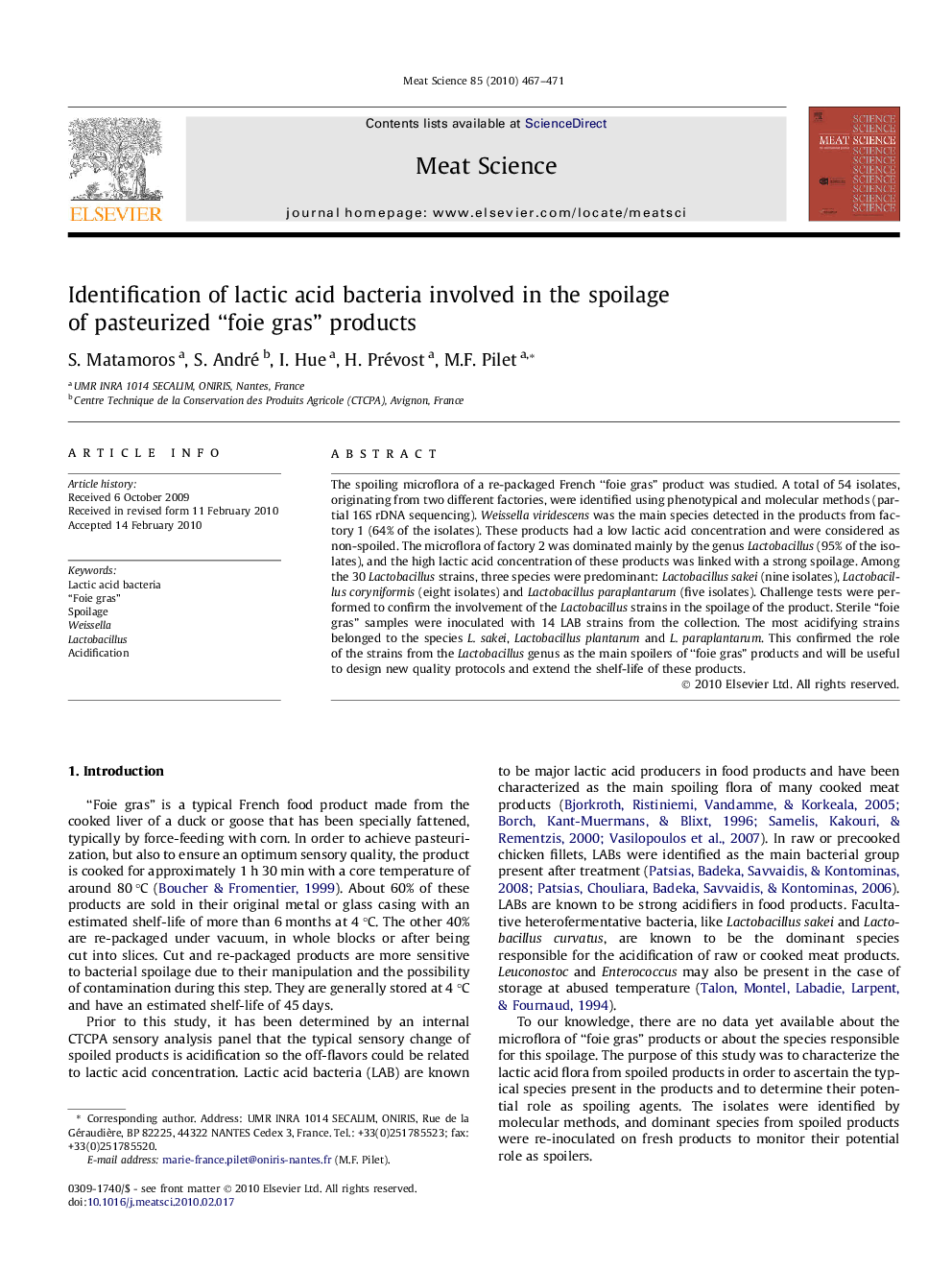| Article ID | Journal | Published Year | Pages | File Type |
|---|---|---|---|---|
| 2450563 | Meat Science | 2010 | 5 Pages |
The spoiling microflora of a re-packaged French “foie gras” product was studied. A total of 54 isolates, originating from two different factories, were identified using phenotypical and molecular methods (partial 16S rDNA sequencing). Weissella viridescens was the main species detected in the products from factory 1 (64% of the isolates). These products had a low lactic acid concentration and were considered as non-spoiled. The microflora of factory 2 was dominated mainly by the genus Lactobacillus (95% of the isolates), and the high lactic acid concentration of these products was linked with a strong spoilage. Among the 30 Lactobacillus strains, three species were predominant: Lactobacillus sakei (nine isolates), Lactobacillus coryniformis (eight isolates) and Lactobacillus paraplantarum (five isolates). Challenge tests were performed to confirm the involvement of the Lactobacillus strains in the spoilage of the product. Sterile “foie gras” samples were inoculated with 14 LAB strains from the collection. The most acidifying strains belonged to the species L. sakei, Lactobacillus plantarum and L. paraplantarum. This confirmed the role of the strains from the Lactobacillus genus as the main spoilers of “foie gras” products and will be useful to design new quality protocols and extend the shelf-life of these products.
